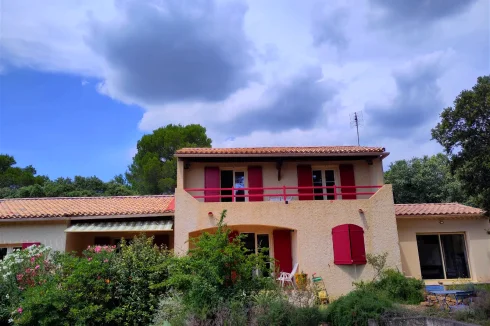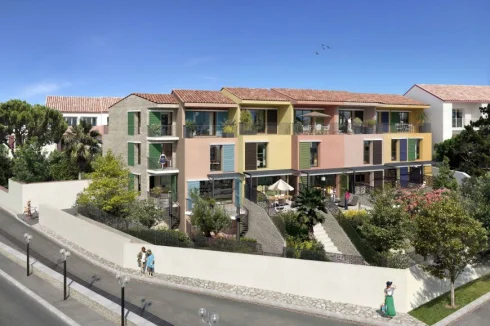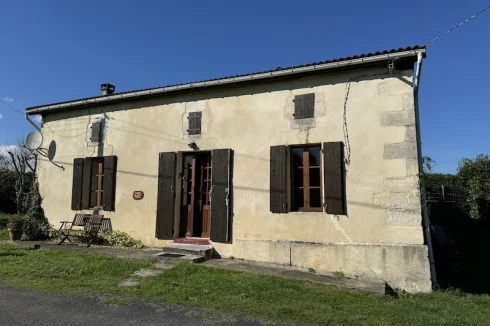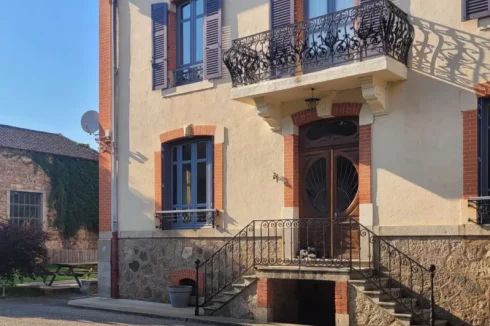The Difficulties of Equity Release in France
Wednesday 01 February 2012
The use of equity release may be a tempting option for some, but the practical realities make it one that is available and suitable for only a few.
Home Reversion Schemes
The traditional route used by the French over the age of retirement to unlock the capital in their home is the actual sale of their home through a system known as 'viager'.
In the UK such schemes are known as ‘home reversion plans’, although they are few and far between, mainly because they are restricted to institutional investors.
The system is much more widespread in France, as it is open to private individuals to invest in these properties, as many thousands do each year.
Nevertheless, it is still a niche market, due to the fact that the ultimate level of investment that will need to be made to secure full ownership of the property is completely unknown at the time of purchase.
Broadly speaking, what happens is that the property is sold, but the seller retains the right to remain in their home until their death, during which time they receive a monthly rent, as well as a single capital sum.
For example, a person aged 65 years occupies a property with an open market value of €150,000, which they wish to continue to occupy en viager.
The value of the life occupation of the property using annuity tables is €150,000 x 40% = €60,000. So the sale price is €150,000-€60,000 = €90,000.
This sum is then payable in the form of a capital sum of, say, €50,000, with the remainder then payable by way of a monthly inflation linked rental.
As a result of this continuing payment, the investor is relying on the early death of their tenant for life in order to secure a good return on their investment!
That is why most viager purchases take place in those parts of the country where the investment growth prospects of the property are strong, and why most sales are to single owners who have reached at least 70 years of age.
So for a couple in the Dordogne countryside in their mid-60s it is unlikely there is going to be a substantial number of investors interested in their property, unless of course it was offered for a bargain price!
Even if they are able to sell, there is always the risk of default on the rental payments by the investor. If this happens it is possible for the occupants to recover ownership of the property, but this inevitably involves several years of legal wrangling in the courts.
The viager system is well regulated in France, and all sales must proceed through a notaire, who is obliged to give appropriate advice to both seller and buyer.
In particular, industry standard annuity scales are used to calculate the value of the occupied property, although the open market value is a matter for negotiation between buyer and seller.
As always, make sure you get good independent advice from a notaire, estate agent or financial advisor. Preferably all three!
Life Time Mortgages
As an alternative to the vente en viager, it is now possible to obtain a life-time mortgage, called a 'prêt viager hypothécaire'.
Life-time mortgages are a relatively recent innovation in France, having been introduced onto the market in the past four years as a result of enabling legislation by the government.
However, despite the enthusiasm of the government for the idea, there are actually very few lenders who are willing to offer them.
The most prominent of these lenders is Crédit Foncier, the specialist mortgage arm of the Caisse d‘Epargne.
The restrictions they impose on the award of the mortgages are very tough, with an interest borrowing rate of 8% and low mortgage to value ratio.
Accordingly, you may be surprised at just how little you can borrow, and just what it will cost you.
There are also high set-up costs, so the real rate of interest is nearer 10%. Crédit Foncier claim this rate of interest is necessary to provide sufficient protection against a fall in property prices, although there are many who consider that they are simply not that keen to offer such loans, and so have made them rather unattractive to potential applicants.
The starting age for obtaining access to the mortgage is 65 years (although in theory it could be lower).
At this age an applicant would be entitled to a maximum mortgage of 20% of the value of their home, subject to a minimum of €20,000. So you need to live in a reasonably priced property if you are to obtain a loan.
The loan can be taken in the form of a monthly annuity as well as a single lump sum and this may be attractive for those who want to budget more carefully.
As interest is payable on the total compound debt, the outstanding debt sum will increase significantly each year, with the result that the debt/equity relationship may well change over time.
Thus, if the value of the property does not increase at the same rate as the level of the debt, then the bank will control a higher percentage of the value of your home.
As far as your inheritors are concerned, the regulations state that the outstanding debt cannot be greater than the value of the home at time the loan was granted. So if the loan is in excess of the value of the property the lender has to take it on the chin and inheritors are protected from having to repay any debt.
If the value is higher than the outstanding debt, then, when the property is sold, your inheritors keep the net proceeds.
If your children wished to retain the property they would have the option of repaying any outstanding debt in order to retain ownership of the property in the family. As a result, the loan does not necessarily imply that the property has to be sold on your death.
When the product was launched we received a number of mails from readers claiming that Crédit Foncier had either refused them access to the loan on the basis of their nationality, or only offered a loan with more specific tougher conditions than French nationals.
We have taken up this issue with the lender who has advised us that although there were 'difficulties' at the outset these have now been ironed out, and that the assessment criteria is the same for both French and EU nationals.
We would be very interested to hear from you if you consider this is not the case. You can e mail us at [email protected]
Thank you for showing an interest in our News section.
Our News section is no longer being published although our catalogue of articles remains in place.
If you found our News useful, please have a look at France Insider, our subscription based News service with in-depth analysis, or our authoritative Guides to France.
If you require advice and assistance with the purchase of French property and moving to France, then take a look at the France Insider Property Clinic.





